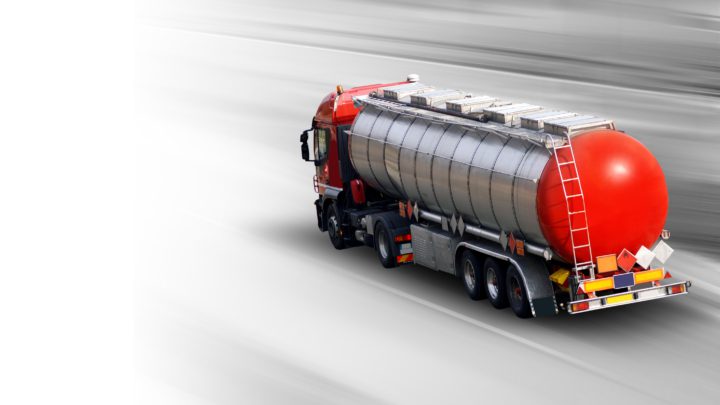
Brexit and the pandemic continue to disrupt the chemical supply chain within the EU and are likely to leave a long-lasting legacy for the future.
The impacts and subsequent challenges affect not only the companies within the supply chain but their customers and downstream users alike.
EU chemical supply issues
Over the past two years, Brexit and the Covid-19 pandemic have caused a variety of issues for the chemical, petrochemical, pharmaceutical, food grade and mineral supply chains. Two of the most critical issues have been the considerable disruption throughout the supply chain, and changes to regulation.
One of the specific problems within the supply chain is the lack of HGV drivers which has been an increasing issue for many years. The root cause of what is, in fact, a global problem is simple; the number of drivers is continually falling while there is an ever-increasing demand for transport.
The declining number of drivers is primarily due to an ageing workforce that is not being replaced as quickly as it retires, or drivers are leaving the industry to work elsewhere.
While pay is, of course, an important point to consider, a poor perception of the profession, a lack of facilities and difficult working conditions have created significant issues in both retaining existing drivers and attracting and recruiting young people and women into the profession. Brexit, meanwhile, has caused the number of EU drivers working in the UK to decline and Covid-related illnesses and travel restrictions have brought even greater disruption.
At the same time, Brexit has brought regulatory changes, increased bureaucracy and new forms of paperwork that make the bulk transport of goods between the UK and the EU even more difficult. Additionally, UK REACH and the widening gap between EU and UK regulations is likely to present ongoing challenges, as chemicals currently used in the UK may be prohibited or even commercially unviable, causing serious manufacturing challenges and potentially resulting in some products no longer being available.
Helping members understand EU transport
The CBA offers members valuable and practical support in understanding EU transport as well as the changing import and export rules, bureaucracy, and paperwork.
Training is a vital part of the CBA’s support, and it provides a wide range of workshops and seminars, available face to face and online, that cover areas such as compliance, regulations, security, and best practice. The association has fully qualified Dangerous Goods Safety Advisers (DGSA) and offers training to businesses about to recruit or have recently appointed DGSAs under the Carriage of Dangerous Goods Regulations. These seminars provide expert guidance on the DGSA roles and responsibilities. With regard to chemical security, where the CBA is an international thought leader, it also delivers workshops on transport and site security, covering areas such as personnel security, vetting and the threat of terrorism.
Representation and consultancy
The CBA represents the interests of the chemical supply chain and its members at the highest levels both within the UK and the EU as well as internationally. Having identified the driver shortage problem at an early stage, it continues to work hard within the UK and in the EU on behalf of members to solve disruption. It persistently lobbies the UK government, raises, and highlights supply chain issues through regular appearances on the BBC, ITV, and other national news programmes.
The organisation also engages with stakeholders to find practical short-term fixes and long-term solutions. The leadership it demonstrated on the HGV driver shortage issue led to the introduction of various short and medium-term remedies, and it continues to work with various stakeholders on longer term solutions.
The CBA has repeatedly raised concerns with the UK government over UK REACH (Registration, Evaluation, Authorisation and Restriction of Chemicals). Introduced as a UK replication of EU REACH following Brexit, there are serious questions about its practicality and workability, as well as the need for duplication and repeated costs. The organisation achieved a significant step forward in its efforts towards the end of 2021 when Defra announced it would consult on extending the UK REACH deadlines and investigate a new, more workable, and affordable model capable of delivering the appropriate levels of data to support UK REACH registrations.
Acting as an advocate
Aside from industry-wide lobbying, the association also acts as an advocate, representing businesses in Westminster, Whitehall, and Brussels. Within the EU, it has effective working relationships with lawmakers and regulators as well as working closely with various national chemical industry associations across Europe. It is also in discussion with the German Embassy and Indian High Commission to promote trade between these important economies and the UK.
The CBA not only represents its members; its near 100 years of experience and the expertise of its members mean it is frequently called on to provide support and direction to governments, executive bodies and other stakeholders in the UK, the EU and globally. With the UK government, for example, it works closely with departments such as the DfT and DIT, as well as the Health and Safety Executive, to provide industry insights and advice.
Indeed, the CBA often takes the initiative by developing new solutions, such as working with stainless steel container manufacturer Thielmann to design a new intermediate bulk container (IBC) for the transport of ammonia. Approved by the DfT in 2019 and with the first carriers in use in 2021 before the expiry of Multi-Lateral Agreements (MLAs), this innovative new design has helped to avoid the issues regarding the transport of ammonia solution in territories contracted to the ADR agreement.
Collaboration and partnership
No stranger to collaboration and partnership, the CBA has a rich history of working closely with other organisations and stakeholders. The association is part of the Alliance of Chemical Associations (ACA) and various other organisations and, when working on areas of mutual interest, collaborates with the CIA (Chemical Industries Association) and BCF (British Coatings Federation).
A dedicated helpdesk where members can assistance with everything from technical advice to import/export customs formalities is one of the services the organisation has seen record levels of demand for over the course of the last few years thanks to the changing national and global landscape.
With ongoing issues around compliance, regulation, security, globalisation, sustainability and more, the Chemical Business Association provides members with invaluable support in an ever changing market.

